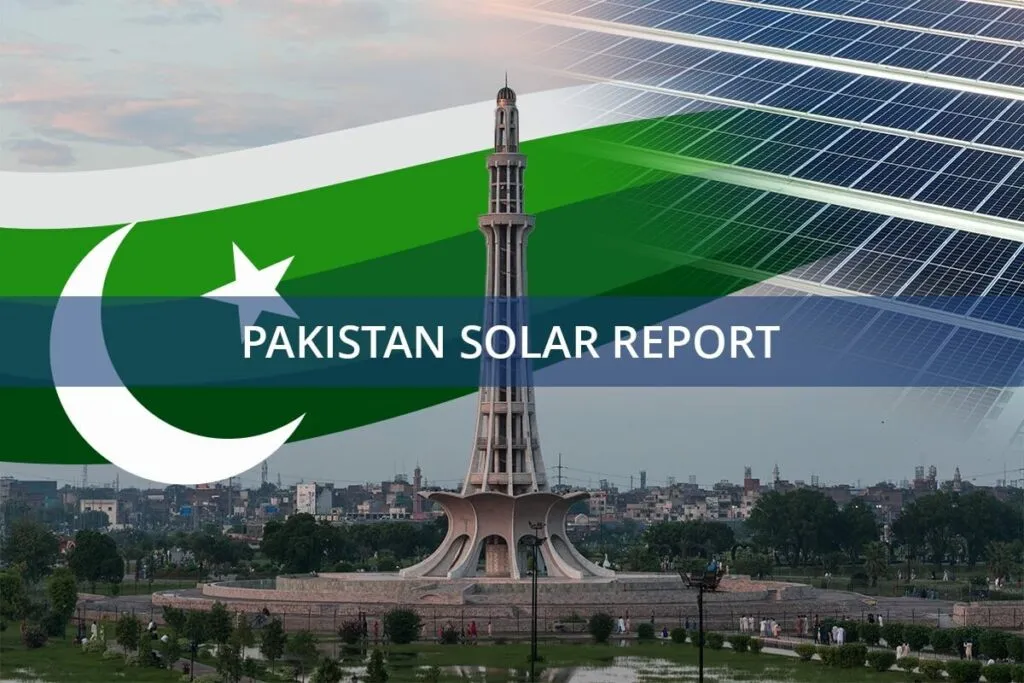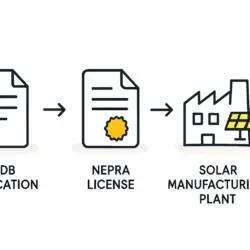Pakistan is making strides in adopting solar energy as part of its renewable energy push. The country is now the second-largest solar market in South Asia, following India. In 2024, Pakistan’s solar capacity reached 2.5 GW, accounting for 2% of its total electricity supply. The government has set ambitious goals to expand solar energy to 12.3 GW by 2025 and 45 GW by 2030, which would account for 20% and 50% of the total electricity supply, respectively. According to a recent report, Pakistan’s solar power sector is projected to experience stunning growth by 2025, showcasing the increasing importance of solar in the nation’s energy strategy (https://www.pvknowhow.com/news/pakistan-solar-power-stunning-2025-growth-projection/).
Government Initiatives for Pakistan solar initiatives
The government has introduced several measures to promote solar energy adoption, including tax exemptions for solar equipment, net metering policies, and relaxed import duties on solar panels and batteries. More details on the solar panel duty exemption policy in Pakistan can be found at https://www.pvknowhow.com/news/solar-panel-duty-exemption-in-pakistan/. The Central Power Purchasing Agency (CPPA) has also launched a solar auction program to facilitate the development of large-scale solar projects. The first auction in 2023 resulted in a total capacity of 1.2 GW being awarded to solar developers.
Solar Energy Potential in Pakistan solar initiatives
Pakistan’s solar energy potential is vast, with an estimated capacity of 2.9 million MW. The country receives an average of 8 to 10 hours of sunlight per day, making it ideal for solar power generation. Key areas with significant potential include Sindh, southern Punjab, and parts of Balochistan. However, challenges such as high costs, lack of skilled labor, and limited awareness among consumers need to be addressed to fully realize this potential.
Investment and Targets for Pakistan solar initiatives
Investments in solar energy are essential for Pakistan to achieve its renewable energy goals. The government is targeting $14 billion in investments to add 12 GW of solar capacity by 2025, and $45 billion to achieve 45 GW by 2030. These investments will require contributions from both public and private sectors, with international support also playing a crucial role. The government is working to create a conducive environment for solar investments by offering incentives, streamlining approval processes, and providing technical assistance to developers. Additionally, Pakistan is planning 100MW solar projects in Gilgit-Baltistan to tackle power outages, inviting investments to achieve its goals (https://www.pvknowhow.com/news/pakistan-govt-plans-solar-projects-in-gb/).
Conclusion of Pakistan solar initiatives
Overall, solar energy presents a significant opportunity for Pakistan to diversify its energy mix, reduce carbon emissions, and enhance energy security. With continued investments and supportive policies, solar energy could play a pivotal role in the country’s future energy landscape. The rise of net-metering solar in Pakistan, which has surpassed 4 GW, indicates a promising trajectory for the country’s renewable energy sector (https://www.pvknowhow.com/news/net-metering-solar-pakistan-capacity-4gw/).



